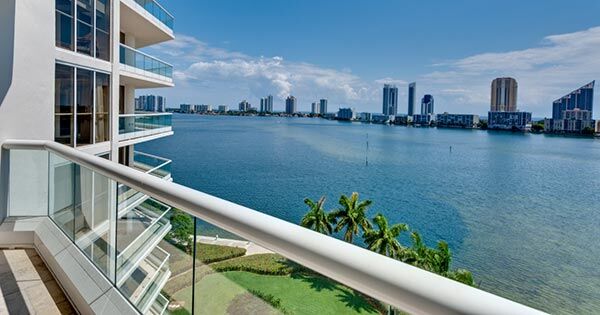Thailand Property Outlook
Landowners will meet the new year with a corresponding new land and property tax in January 2020 and thereafter (CBRE,2019). Those who will be badly hit will be the owners of vacant lands. This early, many of them preempt the new burden by developing these lands commercially in order to raise additional income to pay the new tax and avoid selling their vacant lands. But they may be taking risks by hastily plunging into inappropriate development steps that could instead lead to losses. They may build or develop initiatives for which no demand exists and owe banks more than the new property tax will charge. This can happen if landowners lack the know-how, experience, or market expertise (CBRE, 2019).
Neither will the establishment of commercial offices, retail, or residences for rent respond effectively to the oncoming tax burden (CBRE, 2019). The location or size of the vacant land concerned is likely the reason. Site owners may also not possess the appropriate commercial knowledge or finances to establish these themselves. They should first find out how much new tax they must pay. Then they should explore the best options to raise added income that should be used for development activities on their lands. They may likewise decide to lease their vacant sites for the same purpose. But again, not all locations are profitable for development or may attract tenants (CBRE, 2019).
If they find no suitable approach, vacant landowners may be forced to sell their property (CBRE, 2019). There is also a need for a clear understanding of land usage, particularly agricultural lands, which are taxed less than other types. They can only monitor the release of supplementary laws until the end of this year (CBRE, 2019). Until then, they can only speculate and prepare what they can for uncertainties.
Benefits of Investing in Real Estate in Thailand
In general, foreigners are not allowed by the laws of Thailand to own freehold lands (KPMG, 2018). They may obtain and own only houses, buildings and condominiums established on those lands. In some exceptions, the Minister of Interior may allow owning land but only with the permission from the Board of Investment Thailand and if the foreigner is the owner of a BOI-promoted company. The company must sell its land when it stops operating or moves its business elsewhere (KPMG, 2018).
Although foreigners cannot wholly own land in Thailand, they can invest in apartments, condominiums, or villas (Chen, 2019). Condominiums and apartments in Bangkok, for example, command prices or rentals twice or even thrice similar properties in other places. This is similarly the case with condominiums near the MRT subway as compared to other locations. A condominium located at 100 meters from mass transit systems sells no less than 200,000 baht per square meter. And the price is half or nothing for those located farther (Chen, 2019).
Foreigners may buy landed properties in places outside Bangkok, like Chiang Mai, Phuket, Pattaya, and Hua Hin, on a 30-year lease (Chen, 2019). Renting your property is also an attractive option, as income taxes on rental incomes are very low because of several deductions. Rental tax is not higher than 5% or even less (Chen, 2019).
Investing in property in Thailand has enticed many from all over the world (Property Showrooms, 2002). Entry prices are low and Thailand has an enchanting “Buy to Let” offering because of its strong tourism program. Thailand is known the world over as an exotic tourist and business destination. These features that pull in both tourist visitors and business fuel its sustained economic growth and investment returns (Property Showrooms, 2002).
The government of Thailand realizes the mutual advantage of foreign advantage and responds to it by making it easy (Property Showrooms, 2002). Substantially lowering financial requirements is one way it does to encourage the entry of more and more foreign investments in a way that has not been done in the past. Entranced investors, for their part, take advantage of the offerings by buying property while the prices are kept low. They are confident about generating substantial and long-term returns when Thailand’s political and economic situations get better and the overall economy, especially the property industry, peaks (Property Showrooms, 2002).
There are many benefits to investing in real estate in Thailand. Property prices are way below those of settled European markets (Property Showrooms, 2002). It is considered the largest growing market in Asia. As such, it has attracted substantial foreign enterprises and become one of the fastest-growing economies in Southeast Asia. Its newly-completed Suvarnabhumi Bangkok International Airport or SBIA enhances commercial property growth in eastern Bangkok. It thus gives the world easier access to Thailand. It is also one of the cheapest for travelers and businesses. It possesses world-class infrastructure and facilities in many locations. Property is much cheaper in Thailand than anywhere else. Increasing government spending raises the rental potential to high levels. It does not charge capital gains taxes, stamp duty or transfer fees for private entrepreneurs (Property Showrooms, 2002).
Why Consult a Thai Property Lawyer
Property or real estate law is applied to foreign investments and investors in Thailand (Thai Contracts, n.d.). There are four basic sources of this law but the Thailand Land Code Act specifically applies to or covers foreign investment in real estate. As stated earlier, this law prohibits foreigners from purchasing and owning real property in Thailand outright. This law contains details that foreign investors must know and comply with buying real estate in Thailand. Among these are land ownership, apartment ownership, leasehold interests, house ownership apart from the land, land ownership by a Thai who is married to a foreigner, usufruct, habitation, servitude, real estate ownership by a Thai company, and transfer fees and tax (Thai Contracts, n.d.). All these cumbersome details and requirements are too complicated and even impossible for foreigners to deal with by themselves (Thai Contracts, n.d.).
Fundamentally, foreigners can own land in Thailand only if Thailand has a treaty with any country allowing it (Thai Contracts, n.d.). But no such treaty exists. Any foreigner who violates this law can be fined or jailed up to two years under Section 111 of the Amended Land Code Act, B.E. 2551.
This is why foreign investors and businesses are advised to consult with or hire a Thai property lawyer to explain these laws, regulations, and requirements from the very start of their venture or represent them in court when they get into trouble with the law in Thailand concerning real property.
_________________
REFERENCES:
CBRE (2019, 31 October). Land and property tax forces site owners to consider options.
Thailand Business News. CBRE Thailand. Retrieved at
https://www.thailand-business-news.com/real-estate/74703-land-and-property-tax-forces-site-owners-to-consider-options.html
Chen, M. (2019, 12 June). Buying real estate in Thailand: a guide for foreign investors. IQI
Global. Retrieved from
https://www.iqiglobal.com/blog/buying-real-estate-in-thailand-a-guide-for-foreign-investors/
KPMG (2018, February). Investment in Thailand. KPMG Proomichai Tax Ltd. Retrieved from
https://assets.kpmg/content/dam/kpmg/th/pdf/2018/03/investment-in-thailand-Mar9-2-secured.pdf




































